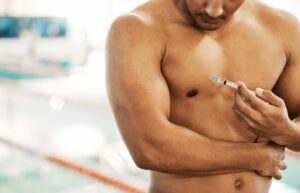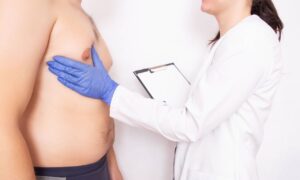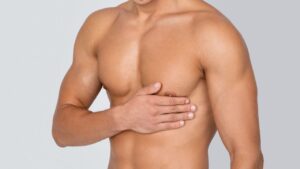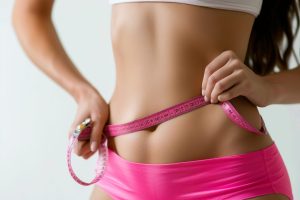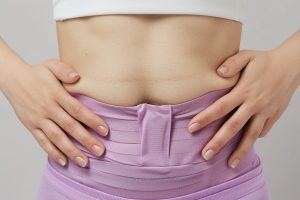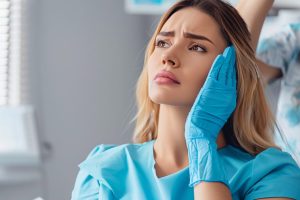The lip filler procedure is quick, minimally invasive, and requires little downtime, making it an attractive option for those looking to enhance their natural beauty without significant interruption to their daily lives. However, the journey to achieving your desired aesthetic does not end at the injection. Proper aftercare is crucial to maximize the benefits of lip fillers and minimize any potential side effects. What not to do after lip fillers is as important as the procedure itself, and understanding these guidelines can significantly impact the success and longevity of your results.
Immediate Aftercare Tips
After enhancing your lips with fillers, the immediate aftercare is pivotal to ensure the longevity and beauty of your results. At Aspira Plastic Surgery, we emphasize the importance of following a meticulous aftercare regimen. Here’s what not to do after lip fillers, distilled into actionable advice to guide you through the recovery phase:
- Avoid Strenuous Exercise: For 24 to 48 hours post-treatment, refrain from engaging in high-intensity workouts. The increased blood pressure and heart rate can exacerbate swelling and bruising, compromising the healing process. Opt for gentle activities like walking to keep active without risking your results.
- Ice Application: Applying ice to the treated area can significantly reduce swelling, itching, and discomfort. Use an ice pack or ice cubes wrapped in a thin cloth to avoid direct contact with the skin, which could cause further irritation or damage to the sensitive post-treatment area.
- Hydration is Key: Drinking plenty of water post-procedure not only aids in the healing process but also helps maintain the filler’s appearance. Hydrated skin ensures a smoother, more natural-looking result.
- Mind Your Diet: Consuming hydrating fruits and vegetables while avoiding high-sodium foods can help minimize swelling. A balanced diet supports your body’s healing mechanism, enhancing the recovery experience.
- Heat Exposure: Steer clear of high temperatures found in steam rooms, saunas, or during heated exercise classes for at least 48 hours after receiving lip fillers. High heat can increase swelling and delay the healing process.
- Pain Management: Consult with your healthcare provider about safe pain relief options. Typically, Tylenol is recommended, but it’s best to avoid blood-thinning medications like ibuprofen or aspirin, which can increase the risk of bruising.
- Sleeping Posture: Sleeping with your head elevated can significantly reduce swelling. Avoid sleeping on your face to prevent unnecessary pressure on the treated area.
- Makeup and Lip Products: To reduce the risk of infection and allow the treatment area to heal, avoid applying makeup or lip products directly to the lips for up to 24 hours after the procedure.
Following these guidelines diligently can significantly impact the success of your lip filler treatment, ensuring a smoother, quicker recovery and more beautiful, lasting results. Remember, the key to a successful lip filler experience lies not only in the skill of the practitioner but also in the care taken during the recovery phase.
Activities and Substances to Avoid After Lip Fillers
After receiving lip fillers, the care you take during the recovery period is just as crucial as the procedure itself. At Aspira Plastic Surgery, we prioritize your well-being and the longevity of your results. Here’s a detailed guide on what not to do after lip fillers to ensure a smooth recovery and maintain the beautiful outcome of your treatment:
- Avoid Alcohol and Smoking: Alcohol acts as a blood thinner, which can exacerbate swelling, bruising, and inflammation. It’s advisable to abstain from alcohol for at least 24 hours post-treatment. Similarly, smoking can increase the risk of infection and delay the healing process due to the constriction of blood vessels.
- Steer Clear of Strenuous Exercise: Engaging in vigorous physical activities can increase blood flow and body temperature, leading to worsened swelling and bruising. It’s recommended to avoid such exercises for at least 24 hours after the procedure.
- Be Mindful of Your Diet: While you can eat after your treatment, opt for foods that are easy to consume and non-irritating. Avoid spicy, salty, or hard-to-chew foods that might cause discomfort or necessitate excessive lip movement.
- Limit High-Temperature Exposure: High temperatures can increase blood flow and swelling. Avoid hot showers, saunas, steam rooms, and direct sun exposure to mitigate these effects.
- Careful with Pain Management: While mild painkillers like Tylenol can be used, avoid NSAIDs (e.g., ibuprofen) as they can act as blood thinners, potentially worsening bruising and swelling.
- Refrain from Touching or Massaging Your Lips: It’s crucial not to apply pressure or disturb the treated area to allow the filler to settle properly and prevent any displacement.
- Avoid Using Straws and Kissing: Both actions can put unnecessary pressure on the lips, potentially affecting the filler’s distribution and leading to unevenness or increased swelling.
- Postpone Air Travel: Flying can exacerbate swelling and bruising due to changes in cabin pressure. It’s best to wait at least a week before taking a flight.
- Follow-Up Care: Ensure you attend any scheduled follow-up appointments with your healthcare provider to monitor your recovery and address any concerns.
By adhering to these aftercare instructions, you can help ensure a smoother recovery, minimize potential complications, and enjoy your lip filler results for as long as possible. Remember, the key to a successful lip enhancement journey lies in both expert treatment and diligent aftercare.
Managing Potential Side Effects and When to Seek Medical Advice
After undergoing lip filler treatment, it’s normal to experience some side effects as part of the healing process. At Aspira Plastic Surgery, we are committed to ensuring not only the aesthetic success of your treatment but also your health and safety. Here’s how to manage potential side effects and understand when it’s crucial to seek medical advice:
Managing Common Side Effects:
- Swelling and Bruising: These are the most common side effects following lip filler injections. To minimize swelling, apply an ice pack wrapped in a clean cloth to the treated area for 10 minutes at a time, several times a day. For bruising, arnica or vitamin K cream may be gently applied to the surrounding skin, not directly on the injection sites.
- Hydration: Drinking plenty of water post-treatment supports the body’s healing process and helps maintain the plumpness of your lips. Aim for at least 8 glasses of water a day and include hydrating foods in your diet.
- Avoid Certain Substances: Alcohol, caffeine, and smoking should be avoided as they can hinder the healing process. Alcohol and caffeine can cause dehydration, while smoking delays healing and introduces toxins to the body.
- Heat Exposure: Keep away from high temperatures such as hot showers, saunas, steam rooms, and direct sunlight for at least 48 hours post-treatment to prevent exacerbating swelling.
- Limit Sodium Intake: High sodium foods can cause the body to retain water, leading to increased swelling. Opt for fresh, whole foods and limit your salt intake in the days following your treatment.
When to Seek Medical Advice:
While most side effects are mild and temporary, there are instances where you should seek immediate medical attention:
- Intense Pain: If you experience severe pain that isn’t relieved by over-the-counter painkillers.
- Excessive Swelling or Bruising: If swelling or bruising extends beyond the treated area or persists for more than a week.
- Changes in Skin Color: Any signs of blanching (whitening) or cyanosis (bluish discoloration) around the treated area.
- Formation of Lumps: Tenderness or lumps under the skin at the injection sites may indicate a complication.
- Signs of Infection: Fever, excessive warmth, or pus in the treated area are signs of infection and require immediate medical attention.
- Vascular Occlusion: A rare but serious complication where blood flow is restricted, leading to tissue damage. Symptoms include immediate, severe pain, and a change in skin color. This requires urgent medical intervention.
Follow-Up Consultation:
A follow-up consultation with your healthcare provider is crucial. It allows for the assessment of the treatment’s outcome, the identification of any irregularities, and the opportunity for touch-ups if necessary. Your satisfaction and safety are our top priorities, and this follow-up visit ensures that you achieve your desired results with the highest level of care.
By adhering to these aftercare instructions and being vigilant about your recovery, you can enjoy beautiful, long-lasting results from your lip filler treatment. Remember, we are here to support you every step of the way, so do not hesitate to contact us with any concerns or questions you may have during your recovery.

